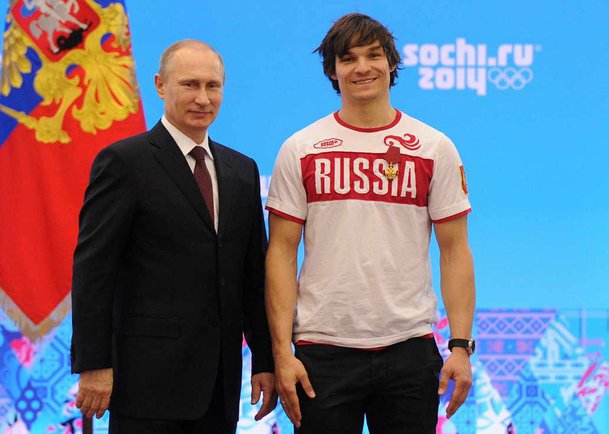 Last Saturday, my daughter and I went to the opening day of Little League season. In our small town of White Salmon, Washington, it’s a day for classic Americana: The players chase their coaches around the bases, the Boy Scouts raise the Stars and Stripes, we sing the Star-Spangled Banner, and a local celebrity throws the first pitch.
Last Saturday, my daughter and I went to the opening day of Little League season. In our small town of White Salmon, Washington, it’s a day for classic Americana: The players chase their coaches around the bases, the Boy Scouts raise the Stars and Stripes, we sing the Star-Spangled Banner, and a local celebrity throws the first pitch.
This year the pitcher was Vic Wild, a White Salmon native who won two gold medals in snowboarding in Sochi. When the announcer called his name, Wild, in dark sunglasses and a flannel shirt, jogged to the pitcher’s mound. He grinned and shrugged, then wound up and let loose a pretty good pitch. The crowd went crazy.
What nobody mentioned—not the announcer, not the kids, not the smiling parents—was that Wild, who graduated from the local high school and trained on nearby Mt. Hood, didn’t win his double gold for Team USA. He won it for Russia, and there are photos of him with Vladimir Putin to prove it.
How did our town come to celebrate a Russian champion?
Vic Wild is an alpine snowboard racer, which means he excels at speed—not the aerial tricks that draw crowds and sponsors. Alpine snowboarding gets scant money and attention from the U.S. Ski and Snowboard Association, and Wild was about to drop out of the sport when he started dating Russian snowboarder Alena Zavarzina. While he was visiting Zavarzina in Moscow, a Russian coach suggested he join Team Russia—and enjoy far better funding and support. Wild married Zavarzina in 2011, then became a Russian citizen and qualified for Russia’s Olympic snowboard team.
When Wild won his medals in February, our local paper trumpeted his victories, but buried his Russian citizenship deep in the story. A few days later, the paper applauded both Wild and his choice to ride for Russia, writing in an editorial that the U.S. team had gotten exactly what it deserved. (Had the U.S. been able to claim Wild’s two golds, Russia, Norway, and the U.S. would have tied for first place in the gold-medal count—as it was, the countries placed first, second, and fourth respectively.)
On the street in White Salmon, support for Wild was somewhat muted but unanimous. At least he didn’t give up his U.S. passport, said some. Others liked that he’d done it for love, or understood that he’d simply wanted to reach the top of his sport.
In other words, we all figured out how to support the local guy, even when he rode under a different flag.
Psychologists who study self-categorization theory might say that we were acting according to our category hierarchies, choosing loyalty to less abstract identities (neighbor, friend, relative) over our more abstract identities as Americans and American sports fans. Political scientist Daniel Druckman of George Mason University and Macquarie University, who studies how groups react to heretics and renegades, says that while each group member has his or her own set of identities to consider, groups will, over time, come up with a cohesive response.
“People don’t just think through their reactions individually—they talk about them with one another,” he says. “The extent to which they reinforce each other will be what you hear on the street.”
As for the White Salmon Little Leaguers, they didn’t need academic theory, or time, or each other in order to know how to react. Here was a guy who’d once played on their field, and had grown up to travel the world and bring home two Olympic gold medals. What could be cooler than that? When Wild returned to the sidelines after his pitch, he was mobbed by players, all waving ballcaps and visors for him to autograph. Smiling, he pulled out a pen and started to sign.
Top photo from Wikimedia Commons.
Does he speak Russian? How funny would it be if he didn’t??
Are you arguing he should be shunned by his home town for winning a gold medal?
Not at all. I just think it’s interesting how we processed it.
OK!